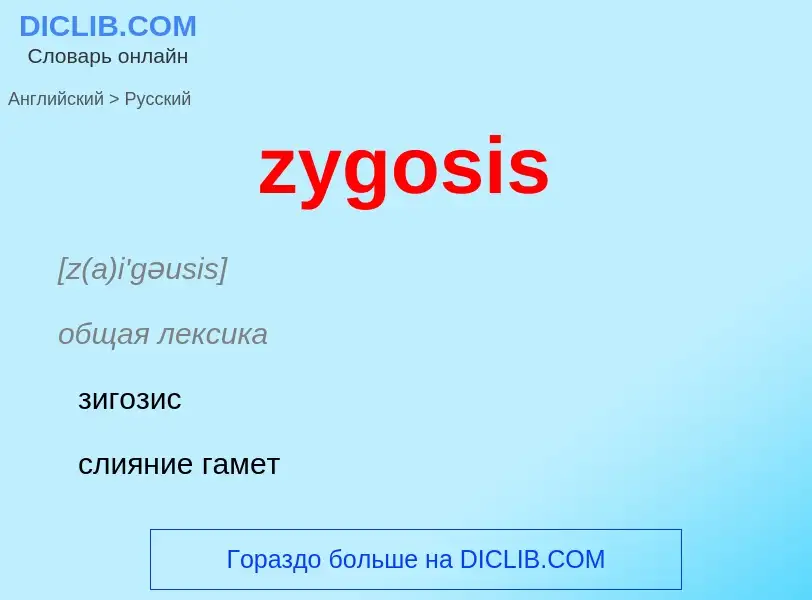Μετάφραση και ανάλυση λέξεων από τεχνητή νοημοσύνη
Σε αυτήν τη σελίδα μπορείτε να λάβετε μια λεπτομερή ανάλυση μιας λέξης ή μιας φράσης, η οποία δημιουργήθηκε χρησιμοποιώντας το ChatGPT, την καλύτερη τεχνολογία τεχνητής νοημοσύνης μέχρι σήμερα:
- πώς χρησιμοποιείται η λέξη
- συχνότητα χρήσης
- χρησιμοποιείται πιο συχνά στον προφορικό ή γραπτό λόγο
- επιλογές μετάφρασης λέξεων
- παραδείγματα χρήσης (πολλές φράσεις με μετάφραση)
- ετυμολογία
zygosis - translation to ρωσικά
[z(a)i'gəusis]
общая лексика
зигозис
слияние гамет
биология
конъюгация
объединение гамет
медицина
зигозис (половое слияние двух одноклеточных организмов)
существительное
биология
конъюгация
объединение гамет
общая лексика
оплодотворённое яйцо
медицина
оосперма (недавно оплодотворённая яйцеклетка)
общая лексика
оплодотворённое яйцо
Βικιπαίδεια

A zygote (from Ancient Greek ζυγωτός (zygōtós) 'joined, yoked', from ζυγοῦν (zygoun) 'to join, to yoke') is a eukaryotic cell formed by a fertilization event between two gametes. The zygote's genome is a combination of the DNA in each gamete, and contains all of the genetic information of a new individual organism.
In multicellular organisms, the zygote is the earliest developmental stage. In humans and most other anisogamous organisms, a zygote is formed when an egg cell and sperm cell come together to create a new unique organism. In single-celled organisms, the zygote can divide asexually by mitosis to produce identical offspring.
German zoologists Oscar and Richard Hertwig made some of the first discoveries on animal zygote formation in the late 19th century.


